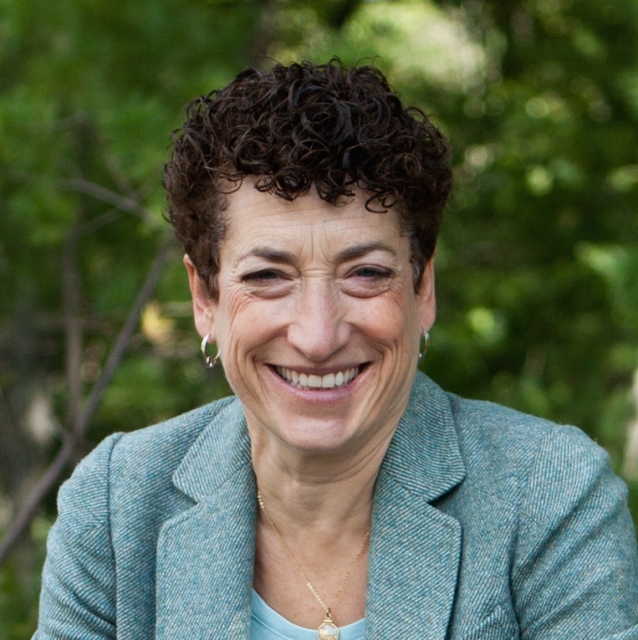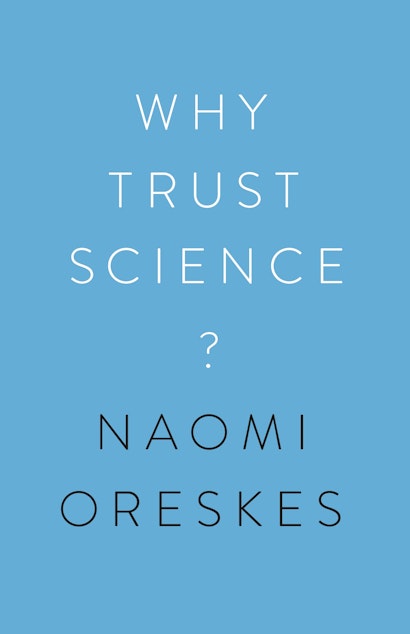Do doctors really know what they are talking about when they tell us vaccines are safe? Should we take climate experts at their word when they warn us about the perils of global warming? Why should we trust science when our own politicians don’t? In this landmark book, Naomi Oreskes offers a bold and compelling defense of science, revealing why the social character of scientific knowledge is its greatest strength—and the greatest reason we can trust it.
You argue that the social character of scientific knowledge makes it trustworthy. Can you explain what you mean by this?
NO: Most people think that science is reliable by virtue of its method—“the scientific method.” But that idea is wrong. In reality, there is no singular scientific method. There are many scientific methods. What makes scientific claims reliable is the process by which they are vetted. All scientific claims are subject to tough scrutiny, and it’s only the claims that pass this scrutiny that we can say constitute scientific knowledge.
Why is science’s relationship with the public so troubled at times? What are the dangers of this perception?
NO: There are many reasons, but the one that concerns me most was the subject of my previous book, Merchants of Doubt: The deliberate effort to generate doubt and distrust by individuals, institutions, and corporations whose interests are threatened by scientific findings. If people reject the findings of science, then we are not in a position to make intelligent decisions about important matters. On the personal level, if we don’t vaccinate our children, we expose them, and others around them, to the risk of serious (and in some cases deadly) diseases, which are otherwise entirely preventable.
On a more global level, consider the ozone hole. Back in the 1970s, scientists told us that a certain group of chemicals, the chlorinated fluorocarbons, had the potential to destroy the ozone layer, which protects us from dangerous—and potentially deadly—ultraviolet radiation. (Without that ozone layer, life as we know it could not exist.) Then, scientists showed that stratospheric ozone was, in fact, being destroyed. Happily, the world paid attention, governments signed the Montreal Protocol on Substances that Deplete the Ozone layer, and life was protected. Had we not done that, we would today be seeing massive increases in deaths from skin cancer, as well as many other things, and in time, life as we knew it could actually have been wiped out. Today, we face something similar with climate change. We are already seeing serious and costly damage from sea level rise and increased storm surges, more powerful hurricanes, worsened heat waves, drought, and the like. If we don’t act soon, the damages could cascade out of control.
What vital lessons can we draw from instances where scientists got it wrong?
NO: In most cases where we think that scientists “got it wrong”, when we look closely we find there was no consensus. So we need to attend to real debate, when it occurs, in the scientific community, but also not to be distracted by manufactured controversy.
How will your book speak to progressives and conservatives alike?
NO: We all need science, and none of us want to be in a position where, in the future, science is so damaged that it is not there when we need it.
What changes in the characterization of the role of science in society would you like to see happen?
NO: I’d like people to have a more realistic view of science—its strengths and weaknesses—so that when scientists make mistakes, which inevitably, as humans, they will, we don’t see it as discrediting science, generally.
What are you working on next?
NO: I’m working on a new project with Erik Conway, for which we received Guggenheim fellowships. It’s called “The Magic of the Marketplace: The True History of a False idea.” It’s about the construction of an American myth: that markets are ‘magic,’ and can solve most if not all of our problems, if only the government stays out of their way. History shows the many ways this claim is bogus, yet many people think it is more or less correct. So we are tracking its origin. It’s a history of how that myth was constructed and sustained, over half a century or more.
A good read for more information:
Fixing the Climate Requires More Than Technology
Naomi Oreskes is professor of the history of science and affiliated professor of Earth and planetary sciences at Harvard University. Her books include The Collapse of Western Civilization: A View from the Future and Merchants of Doubt: How a Handful of Scientists Obscured the Truth on Issues from Tobacco Smoke to Global Warming. Twitter @NaomiOreskes

